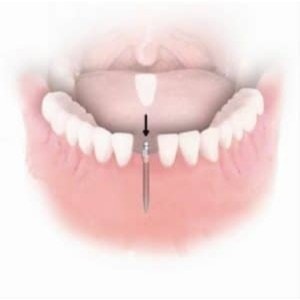Replacing Congenitally Missing Teeth With Mini Dental Implants
August 2, 2023
What are congenitally missing teeth?
Congenitally missing teeth, also referred to as Hypodontia, are defined as the absence of a tooth or teeth. This is considered a developmental abnormality and is more commonly seen in the permanent dentition (adult teeth) and less commonly seen in the primary dentition (baby teeth). The most common missing teeth are the upper lateral incisors and the second premolars/bicuspids.
What causes congenitally missing teeth?
Genetic factors cause congenitally missing teeth and as a result, this condition can often be seen in generations of a family. Missing teeth can also be the result of increased maternal age, low birth weight, multiple births, and early exposure to certain infections, trauma, or drugs. There is also a higher risk of missing teeth associated with ectodermal dysplasia, Down syndrome, and cleft palate.
Why should you replace your missing teeth?
It is important to replace missing teeth for many reasons. Functionality is one example. When teeth are missing, chewing food can be much more difficult. This can cause additional pressure on the remaining teeth and the jaw. This added, disproportionate force can result in teeth fracturing which will eventually lead to losing more teeth and can also cause jaw pain in the future. When teeth are missing it interferes with proper function and the teeth next to and above the missing tooth/teeth will shift, supra-erupt, and tip into the open space over time. It is much easier to restore a missing tooth soon after it is lost than waiting a number of years after teeth have shifted and/or bone has been lost.
Treatment options for replacing congenitally missing teeth
Removable Partial Denture
Dental Bridge
Mini Dental Implant
Why mini dental implants?
Mini dental implants can be used to replace a single missing tooth, or multiple teeth, or to stabilize dentures.

Benefits of Mini Dental Implants versus a bridge or removable partial denture:
Non-invasive procedure.
Fast recovery time.
Comparable cost to a bridge.
It can fit into smaller areas of your mouth.
Can be placed along with a temporary crown on the same day
They are a permanent, fixed solution.
How do I know if I’m a candidate for mini dental implants?
Potential candidates for mini dental implants include individuals who:

